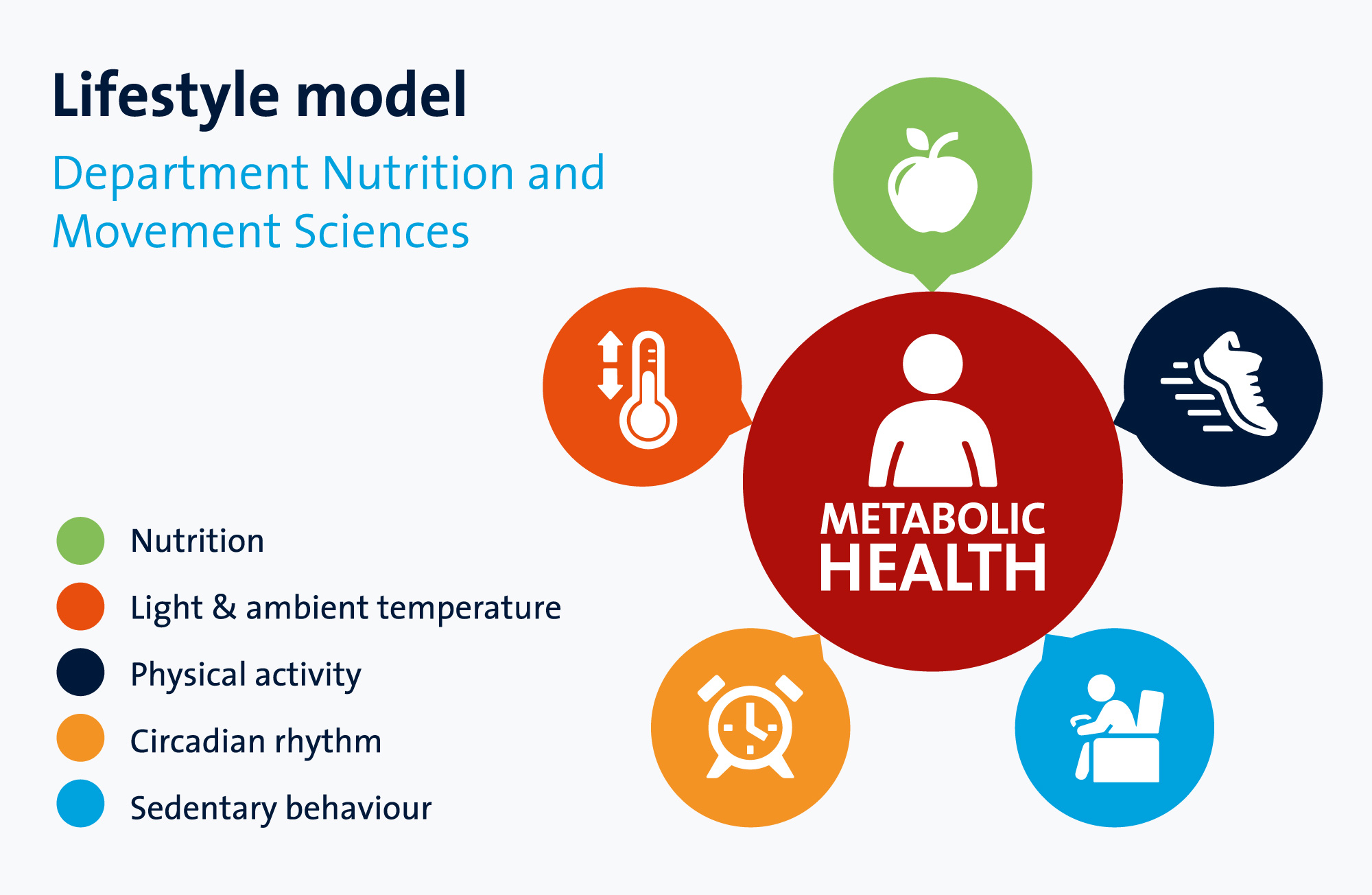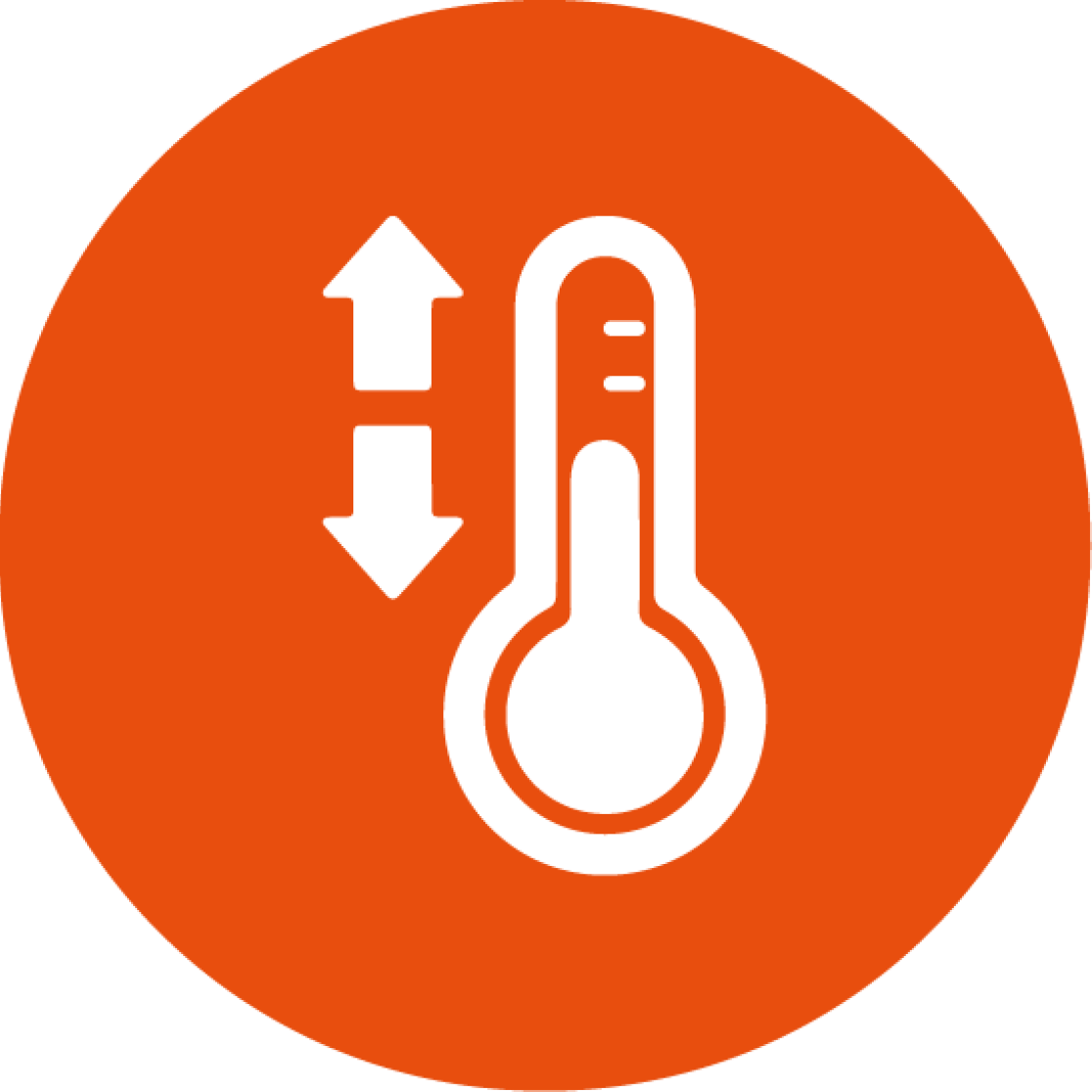Nutrition and Movement Sciences
A healthy lifestyle is generally considered as the cornerstone for metabolic health and this balanced metabolism is a prerequisite for prevention of many non-communicable diseases. We as Department of Nutrition and Movement Sciences explicitly state that a healthy lifestyle is more than only a healthy diet and being physically active.
Our group is working on lifestyle in a broader context, i.e healthy nutrition, physical activity, less sedentary lifestyle, optimal regulation of temperature and appreciating the importance of circadian rhythems. Our holistic approach of integrating the contribution of all lifestyle factors is unique and reflected in the Healthy Lifestyle Model.

Healthy nutrition
How much we eat, what we eat, and when we eat has a strong effect on metabolic disorders, which predispose to many chronic diseases. Thus, evidence-based dietary guidelines are key to maintain health. However, there is a constant need to further develop our understanding of dietary nutrients, foods and food patterns on metabolic health and optimal functioning. For this, well-controlled dietary intervention and mechanistic studies are carried out in different population groups.

Physical activity
Walking and running are vital physical activities for maintaining and improving health. To walk (and run) economically while maintaining postural balance is compromised in many (metabolic) disorders. Symptoms like fatigue and increased risk of falling in these disorders are associated with poor walking ability. Via exercise interventions and mechanistic studies we aim to understand how the neuromuscular- and the cardiopulmonary systems contribute to safe and effective movement.

Sedentary behavior
Our western lifestyle is dominated by long periods of sedentary behaviour (i.e. sitting and lying). It has recently been shown that breaking up these sedentary cycles has benefits for muscle and bone strength, cardio-metabolic health, but also mental health and cognitive performances. We aim to identify the optimal combination of frequency, intensity and duration of sedentary/physical behavior to maximize the health benefits of breaking sedentary time and to unravel the metabolic pathways that are involved.

Circadian rhythm
Aside from the sleep-wake cycle, our biological clock regulates over a period of approximately 24 hours numerous biological processes in the body. Disturbances in these circadian rhythms are associated with an elevated risk to develop metabolic disorders like type 2 diabetes and cardiovascular disease. Deepening our understanding of the biological clock in human metabolism will aid to develop better therapies to prevent or cure metabolic disorders in the future.

Light and ambient temperature
Temperature training is a relatively new lifestyle factor. Temperature is not just about comfort. Variation in ambient temperature can have a favourable effect on our metabolic health. This applies to both a mild cold and a warm environment. Quality and timing of light is also an important for a healthy rhythm and metabolism. That is why we investigate how variations in light and temperature affect our health, comfort and productivity. The findings can be applied as therapy and in the built environment.

